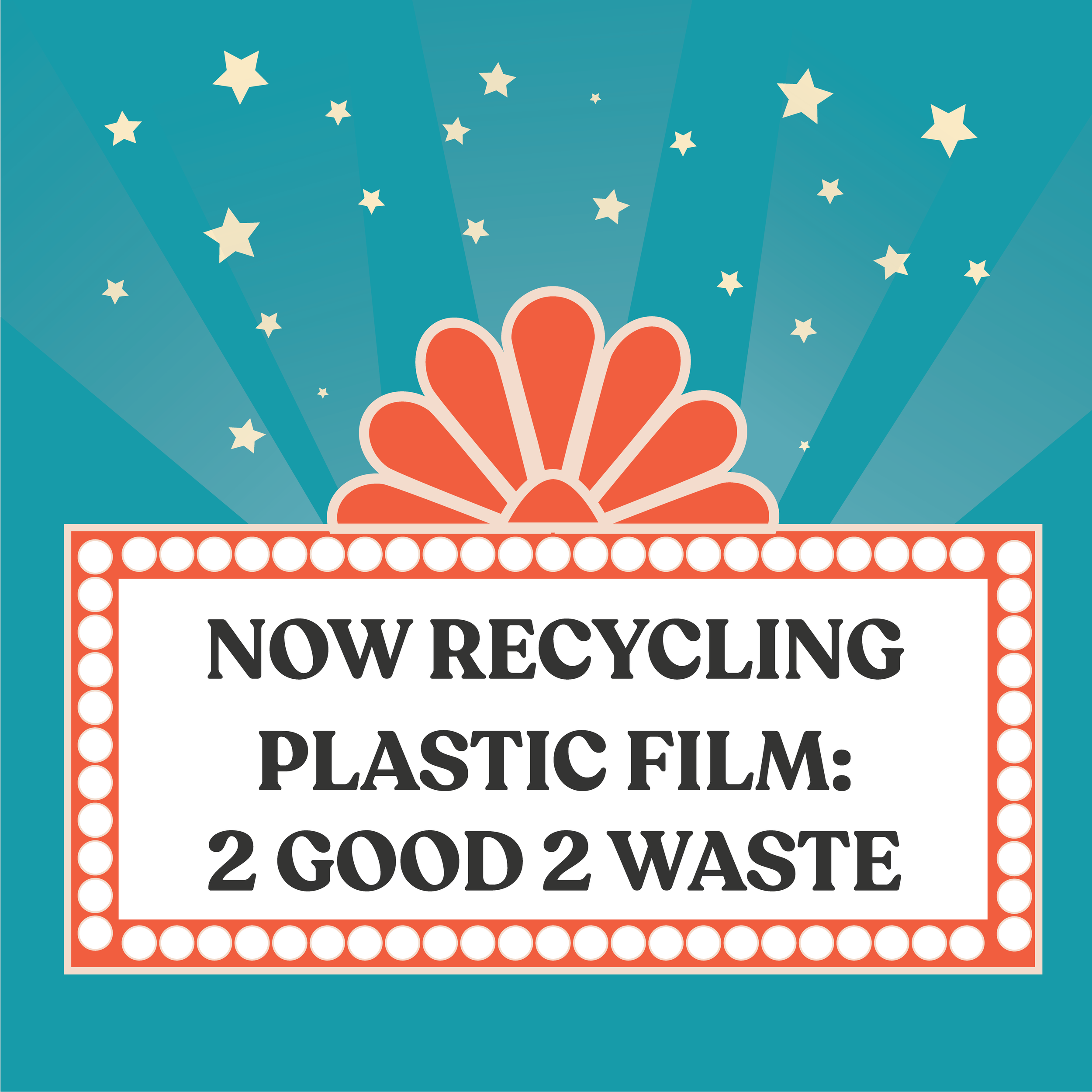A Plastic Film Review
We need to talk about a very popular and divisive film that doesn't involve superheroes. Yes, it’s time to talk about plastic film. Plastic film embodies the conundrum of plastic recycling. It’s everywhere in our lives, but tricky to deal with. So what’s the future of the plastic film franchise looking like? Who are the real heroes and villains here? Let’s start with some backstory on the main character.
Why is plastic film hard to recycle?
As we covered in our plastic recycling numbers overview, to be easy to recycle, a plastic must be easy to sort, easy to process into a new material, and there must be demand for the end material. Plastic film falls short of the first and last criteria. Since it’s thin and stretchy, plastic film tangles up the sorting machinery used in recycling facilities. Additionally, outside of the wonderful partner we work with, Trex, there is not much of an end-market for recycled plastic film.
What types of plastic film can I send to Ridwell?
Since plastic film is so hard to recycle curbside, it is one of the core categories that Ridwell picks up, and includes common items like:
Zip top food storage bags
Grocery bags
Bubble wrap
Bubble shipping envelopes from online retailers
Produce bags
Bread bags
And more! Check out our full list of what types of plastic film we can pick up here.
What happens to the plastic I send Ridwell?
We send it to our plastic film recycling partner, Trex, who transforms it into high-performance composite decking. With Ridwell, your plastic film gets to star in an awesome sequel installment as new patios and furniture!
Can Ridwell take any plastic I have around?
Not quite. It’s important to remember that our partners can’t recycle every type of plastic that our members use. When we receive plastics that our partners can’t take, our hard-working warehouse crew has to manually sort and separate them from your bag and often our only option is to then send them to a landfill. To avoid a huge flop and make sure every pickup is a blockbuster, you can help us out by only placing plastic film in your Ridwell bag that is on the list of what we take.
How can I tell if my plastic film is something Ridwell can take?
In addition to consulting our handy list of plastics we take, we have a couple of go-to ways you can tell if it’s something we can accept:
Use the thumb test: When in doubt, remember: if a plastic is thin, stretchy, and you can push your thumb through it, it’s likely a type of film we can accept and our partners can recycle.
Listen to it: If a plastic is thick, crinkly, and loud in your hands, it’s likely a plastic film that we can not accept. A great example are those plastic bags that beef jerky comes in. Those are actually made of multiple layers of plastic, and not accepted by our recycling partners.
See if it’s clean. We cannot accept plastic that is wet, dirty, or covered in food or food residue.
Look at the number: Most plastic products have a number on them that indicates what type of plastic it’s made out of (not if it’s recyclable). The plastic films we can take will have either a #2 or #4 on them. If you see another number printed on the plastic, it means it’s not something we can take right now.
Ask us! You can always reach out to our Member Success team with a photo or description of your item to make sure we can accept it.

